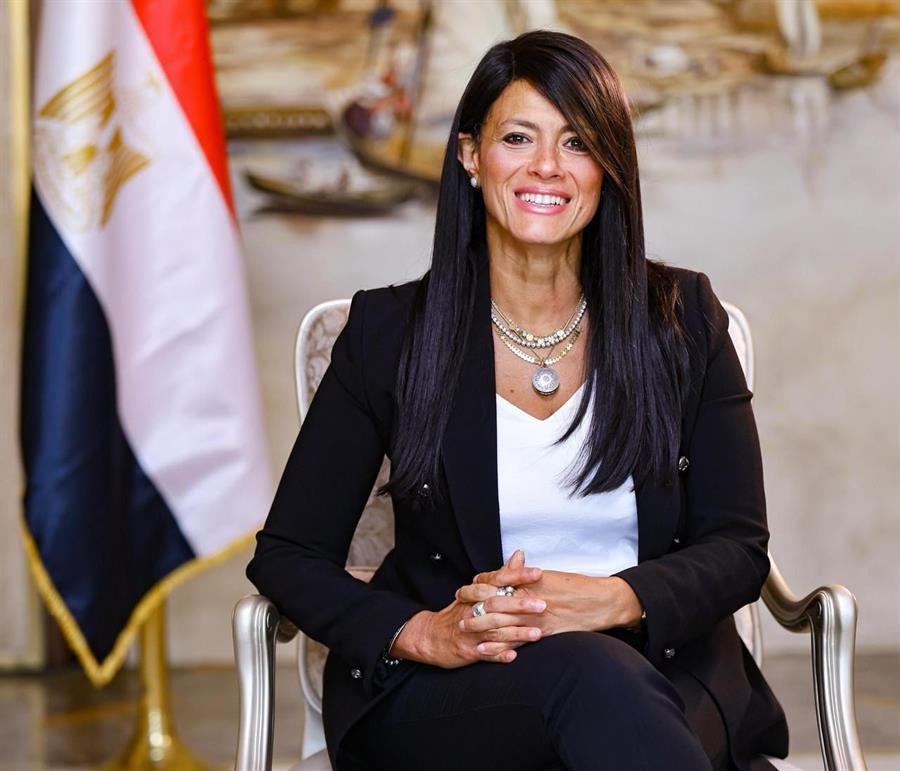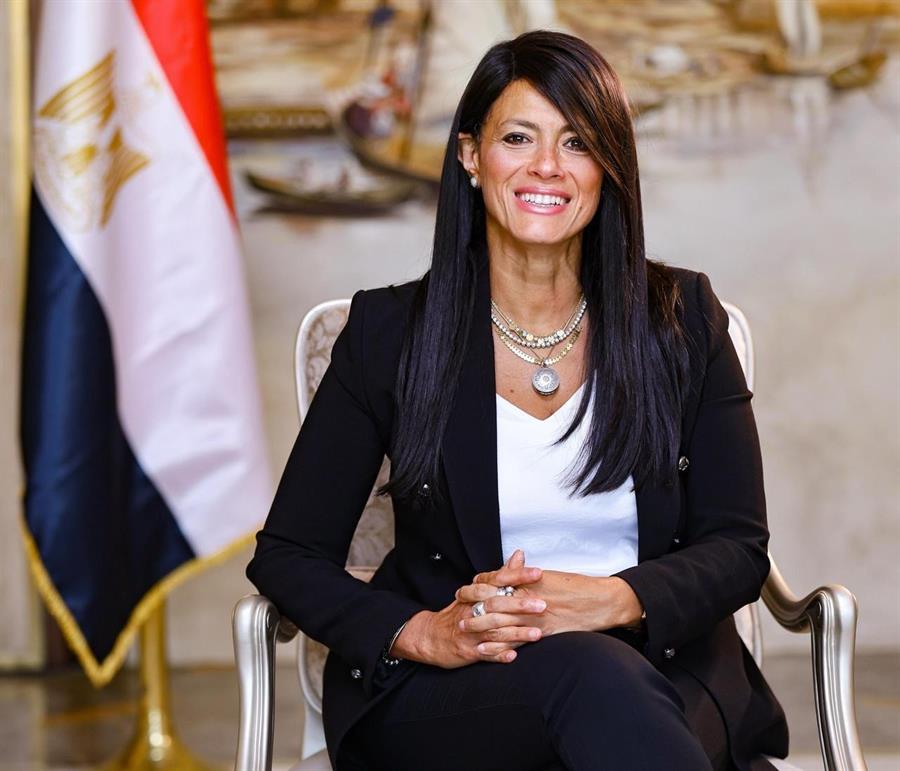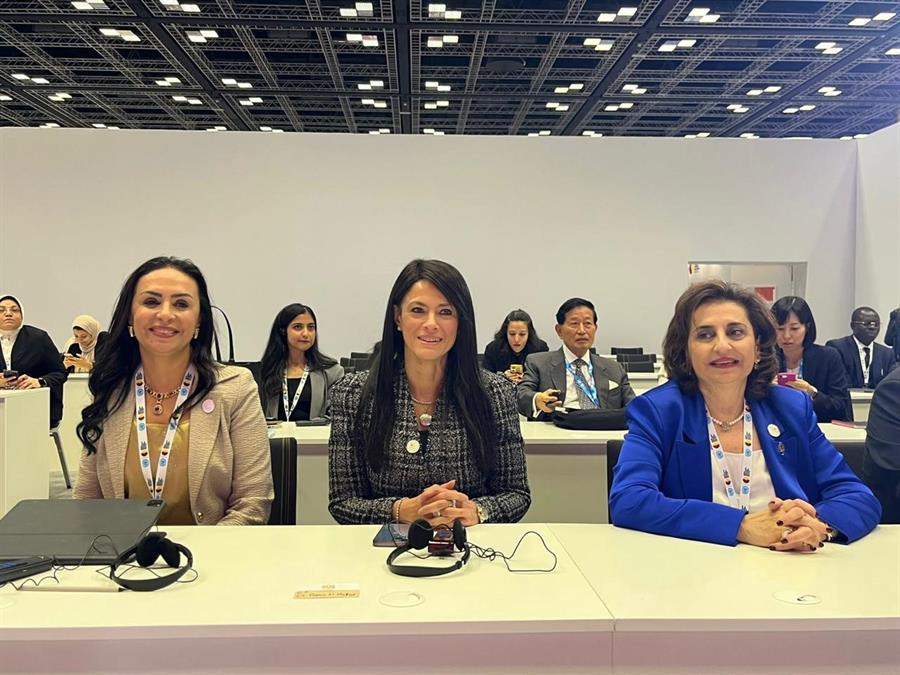H.E. the Minister of Planning, Economic Development, and International Cooperation Participates in Ministerial Opening Session of Egypt-GCC Trade and Investment Forum
10 November 2025
H.E. Rania Al-Mashat: Egypt and Gulf countries possess promising and complementary capabilities to strengthen regional economic security.
Gulf investments remain the largest in Egypt, with opportunities across multiple sectors supported by ongoing economic reform policies.
Egypt adopts an approach focused on empowering the private sector and redefining the state’s role in economic activity.
The Egyptian economy continues to recover and grow despite regional and global challenges, with tourism, industry, and telecommunications driving future growth.
Egypt-GCC cooperation establishes strong partnerships across Asian and African markets and strengthens regional value chains.
The Egypt-GCC Forum marks a launch for activating institutional frameworks for cooperation between Egypt and Gulf countries.
Egypt’s Narrative for Economic Development: Reforms for Growth, Jobs & Resilience provides a framework to expand private sector participation and promote productivity-led growth.
Since 2020, more than USD 16 billion in concessional financing has been provided to the private sector by development partners.
H.E. Dr. Rania Al-Mashat participated in the ministerial opening session of the Egypt-GCC Trade and Investment Forum, which focused on “Prospects for Trade and Investment Relations between the Arab Republic of Egypt and GCC Countries.” The session aimed to review the investment environment in Egypt and the GCC, highlight key developments and supportive legislation, strengthen strategic partnerships between public and private sector representatives, discuss challenges to investment flows, and outline the future of investment cooperation in line with Egypt’s and the GCC countries’ long-term visions.
The session was attended by Eng. Karim Badawi, Minister of Petroleum and Mineral Resources; Mr. Mohamed Gabr, Minister of Labor; Mr. Mohamed Abdelrahman Al-Hawi, Undersecretary, UAE Ministry of Investment; Mr. Abdullah bin Ali Al-Dubaikhi, Assistant Minister of Investment, Saudi Arabia; Ms. Ibtisam bint Ahmed Al-Farouji, Undersecretary, Ministry of Commerce, Industry, and Investment Promotion, Oman; Mr. Mohamed Hassan Al-Malaki, Undersecretary, Ministry of Commerce and Industry, Qatar; and was chaired by Dr. Alaa Ezz, Secretary-General, African and European Chambers of Commerce.
In her speech, H.E. Dr. Al-Mashat expressed her pleasure in participating in this important forum, highlighting the depth of historical ties and brotherly relations between Egypt and GCC countries, which are based on mutual trust, shared vision, and complementary interests. She emphasized that Egypt and the Gulf countries have promising and complementary capabilities to enhance regional economic security and that Gulf investments remain the largest in Egypt, with opportunities across multiple sectors supported by economic reform policies.
H.E. Dr. Al-Mashat noted that the forum comes at a critical time amid rapid regional and global economic and geopolitical changes, requiring deeper strategic partnerships to enhance economic integration and develop shared value chains. She emphasized that Egypt-GCC cooperation establishes strong links across Asian and African markets while strengthening regional value chains.
The minister highlighted that Egypt and GCC countries have complementary economic and investment strengths that enable the creation of sustainable partnerships. GCC countries remain Egypt’s leading regional investment partner and one of the largest sources of foreign direct investment in energy, real estate, financial services, tourism, and agriculture.
She added that this long-standing successful partnership can be deepened to align with shared priorities and emerging global and regional developments, particularly following Egypt’s structural, economic, and financial reforms. She emphasized that Egypt adopts an approach that empowers the private sector while redefining the state’s role in economic activity, and that the Egyptian economy continues to recover and grow despite regional and international challenges, with tourism, industry, and telecommunications leading future growth.
H.E. Dr. Al-Mashat reviewed Egypt’s positive economic indicators, which reflect robust performance and continuous recovery. She noted that Egypt’s GDP growth reached approximately 5% in Q4 FY 2024/2025, compared to 2.4% during the same period the previous year—the highest quarterly growth rate in three years. This contributed to an annual growth rate of around 4.4%, up from 2.4%, reflecting the resilience of Egypt’s economy in facing external shocks, supported by policies promoting macroeconomic stability, improved governance of public investment expenditure, and enhanced private sector participation through continued structural reform implementation.
H.E. Dr. Al-Mashat confirmed that the Egyptian economy has demonstrated resilience and recovery in response to successive external shocks, reflecting the success of government policies in enhancing macroeconomic stability, improving governance of public investment expenditure, and supporting the private sector, in line with the national structural reform program.
She highlighted that the structure and sources of growth demonstrate Egypt’s economic strengths, driven by key sectors including tourism, industry, and telecommunications/IT, which form essential pillars for future development.
H.E. Dr. Al-Mashat underlined that Egypt has adopted a new economic model through “Egypt’s Narrative for Economic Development: Reforms for Growth, Jobs & Resilience,” based on three pillars: ensuring macroeconomic stability as a prerequisite for sustainable growth, structural transformation toward tradable sectors including industry, tourism, agriculture, energy, and IT, and redefining the role of the state to empower and incentivize the private sector. The narrative provides a framework for the success of both domestic and foreign investments, particularly those from Gulf countries.
She also noted that the “Hafiz” platform provides an integrated digital bridge linking private sector institutions with development partners, offering financial, technical, advisory, and capacity-building services. This enhances the business environment and facilitates access to financing and initiatives locally and internationally. Since 2020, the private sector has received around USD 16 billion in concessional financing.
H.E. Dr. Al-Mashat concluded by expressing confidence that the forum represents a new step in strengthening Egypt-GCC partnerships, supporting an integrated and sustainable Arab economy based on innovation, investment, and capacity integration. She emphasized that the Egypt-GCC Forum marks the launch of efforts to activate institutional frameworks for cooperation between Egypt and the Gulf countries.
She also highlighted that experiences of cooperation with the UAE, Oman, and Bahrain represent a blend of shared expertise and integrated practices, which can be leveraged to implement economic initiatives quickly and strengthen partnerships. Egypt is working with its partners through joint committees to activate institutions effectively and translate ideas into practical steps that enhance economic and investment cooperation.









